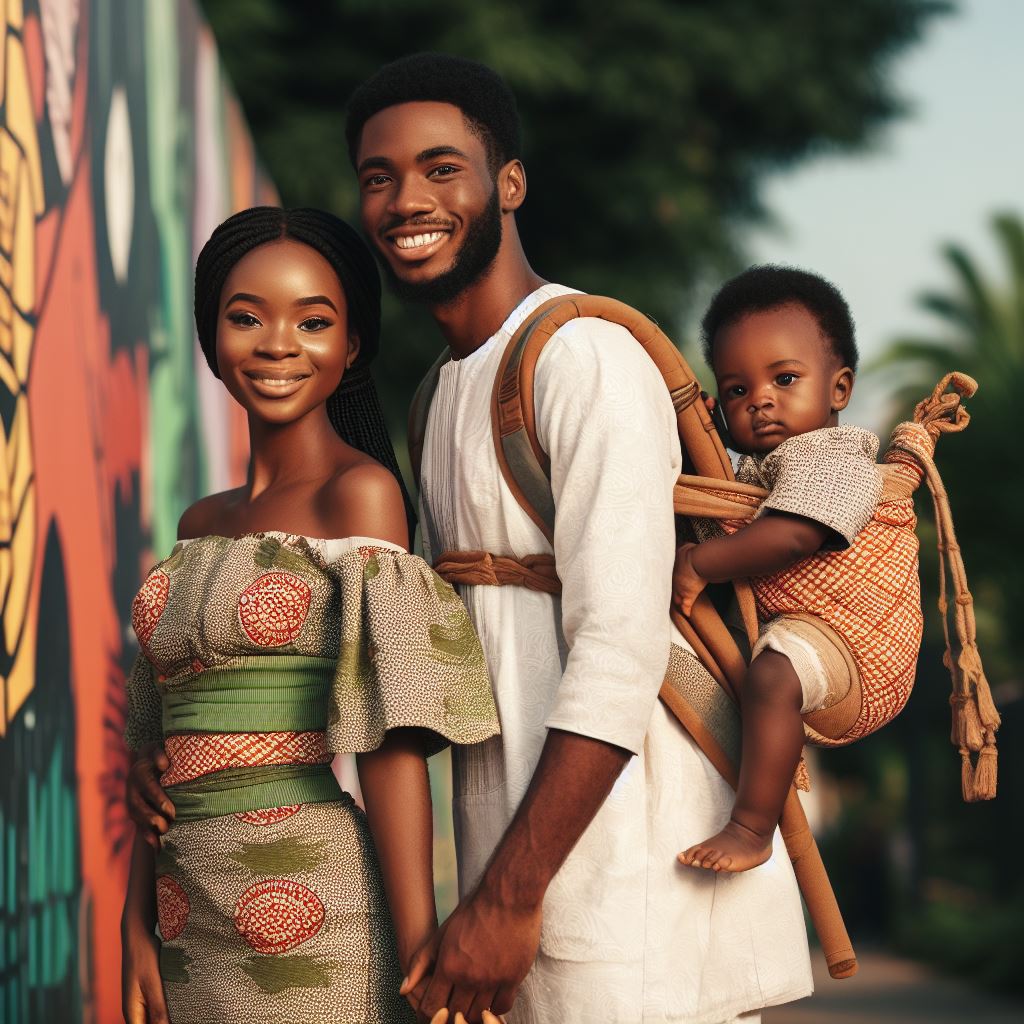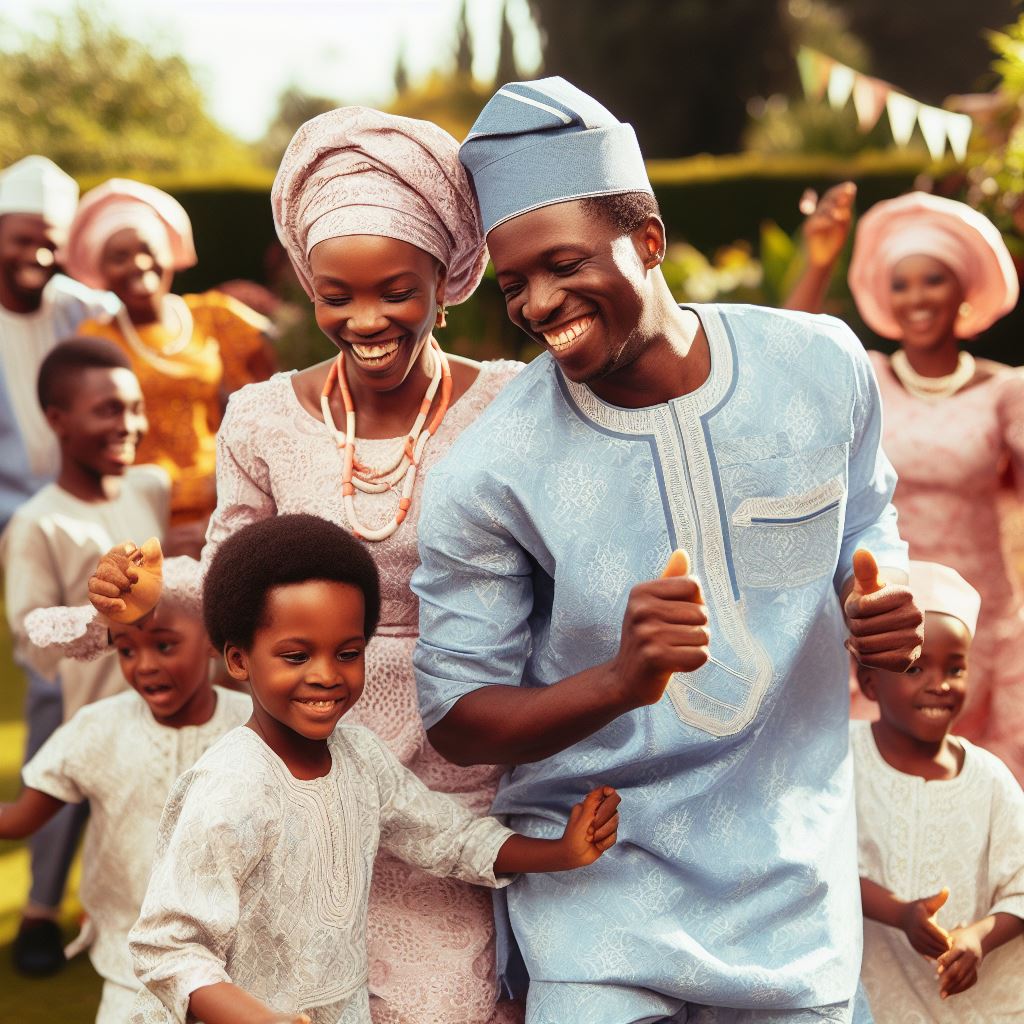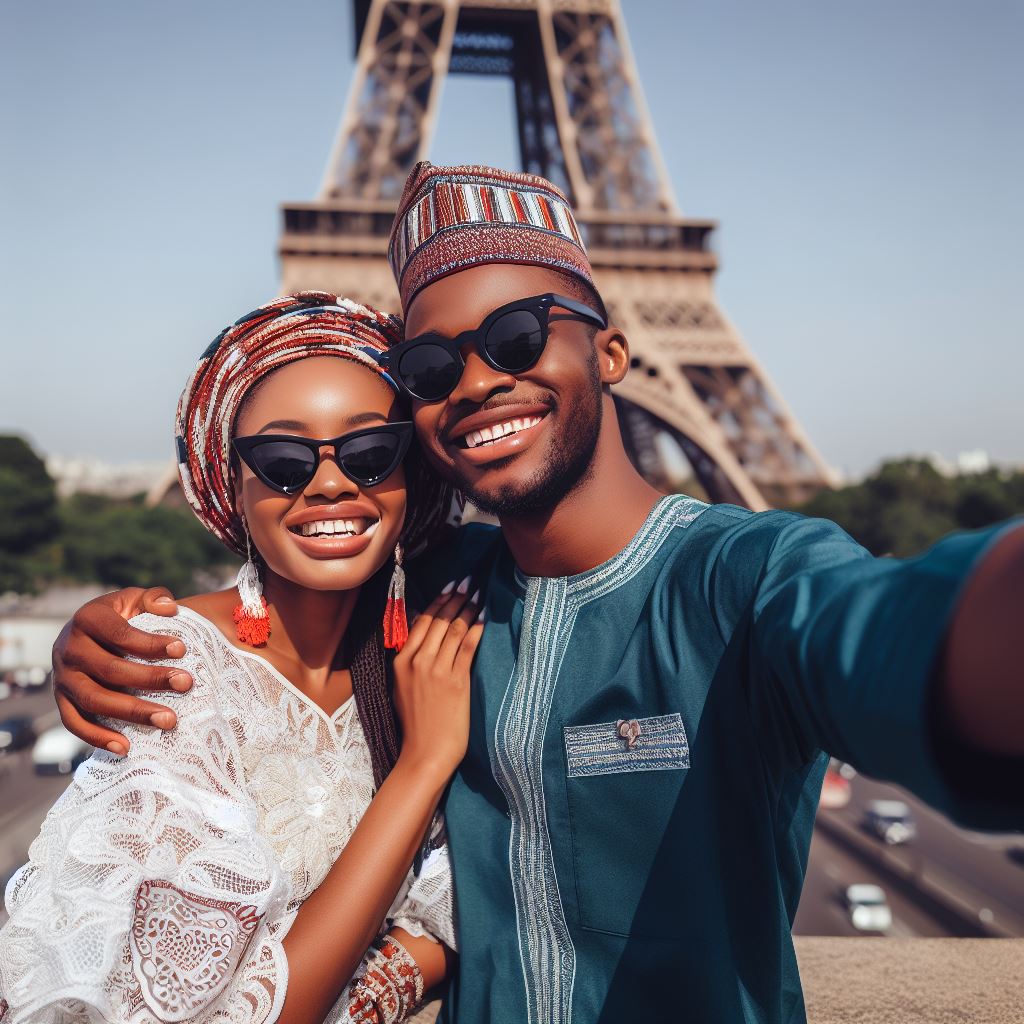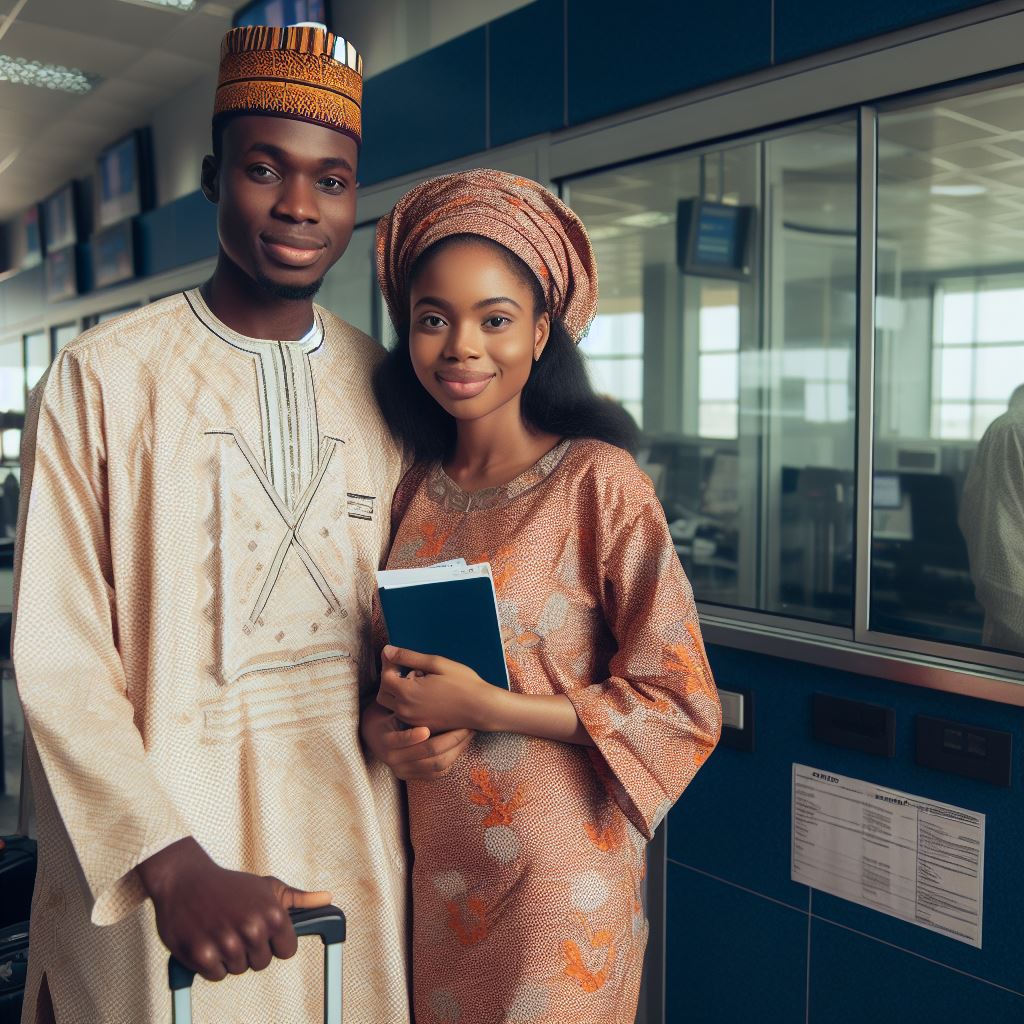Introduction
Let’s explore Modern Love: changing perspectives on marriage in Nigeria.
The topic “Modern Love: Changing Perspectives on Marriage in Nigeria” explores the evolving views on marriage in Nigeria.
This blog post aims to delve into the modern attitudes towards marriage in Nigeria and shed light on the factors influencing these changing perspectives.
In a society that traditionally values arranged marriages and emphasizes the importance of family and cultural norms, it is crucial to discuss the shifting perspectives on marriage in Nigeria.
With globalization, urbanization, and increased exposure to different cultures, Nigerian society is experiencing a shift in attitudes towards marriage.
This blog post seeks to explore the reasons behind these changing perspectives.
Factors such as education, economic independence, and exposure to alternative relationship models are influencing Nigerians to redefine their expectations of marriage.
The post will also examine the role of gender equality and empowerment in shaping these new perspectives.
By examining the changing attitudes towards marriage in Nigeria, we can gain a better understanding of the social, economic, and cultural factors that contribute to these shifts.
Furthermore, this exploration can provide insights into the impact of modernization and globalization on Nigerian society.
As Nigeria continues to evolve, it is vital to discuss and address the changing perspectives on marriage.
This blog post aims to contribute to the ongoing dialogue surrounding marriage in Nigeria and provide a platform for individuals to share their experiences, challenges, and aspirations in this modern era.
Traditional Nigerian Marriage
Traditional Nigerian marriage customs and practices
In traditional Nigerian marriage, customs and practices play a significant role.
The importance of family and community in traditional marriages
The importance of family and community cannot be overstated in traditional marriages.
Role of arranged marriages and parental influence
Arranged marriages are common, as parental influence is highly valued.
The roles and responsibilities of husbands and wives in traditional marriages
Husbands have the responsibility of being the provider and protector in traditional marriages.
Wives, on the other hand, are expected to be submissive and take care of the home.
Traditional Nigerian weddings are elaborate affairs filled with cultural rituals and ceremonies.
The bride price, also known as “lobola,” is a customary practice that symbolizes the groom’s commitment.
It is believed that in traditional marriages, the union is not just between the couple but between two families.
The roles of extended families in traditional marriages
Extended family members, including grandparents, aunts, and uncles, have an active role in traditional marriages.
The community also plays a significant role in ensuring the success and longevity of the marriage.
Traditional Nigerian marriages are seen as a way to preserve cultural values and heritage.
Women in traditional marriages are expected to be obedient and respectful towards their husbands.
Gender roles are well-defined, with husbands being the head of the household.
Marriages in Nigeria are seen as a union of not just two individuals, but of entire families.
There is a strong belief that marriage is a lifelong commitment that should not be taken lightly.
Divorce is traditionally frowned upon and seen as a failure of the couple and their families.
Marriage ceremonies usually involve a series of events and ceremonies that can last for several days.
Each ethnic group in Nigeria has its own unique marriage customs and traditions.
These customs differ in terms of the marriage ceremony, rituals, and expectations of the couple.
Some traditional marriages involve the payment of dowry, while others focus more on cultural traditions and ceremonies.
Traditional marriage attire is colorful and reflects the cultural identity of the couple.
Music, dance, and festivities are important aspects of traditional Nigerian wedding ceremonies.
Celebrations are often held in the bride’s hometown, with relatives and friends coming together to celebrate.
Overall, traditional Nigerian marriages are deeply rooted in culture, family, and community.
They serve as a way to preserve traditions and maintain the social fabric of Nigerian society.
Read: Understanding Marriage Laws and Rights in Nigeria
Factors Influencing Changing Perspectives
Influence of globalization and exposure to Western culture
The increasing interconnectedness of the world has brought about the exposure of Nigerians to Western ideals and perspectives on marriage.
Globalization has allowed for the dissemination of Western media and ideologies, which have played a significant role in shaping Nigerian perceptions of marriage.
Economic factors and the impact of urbanization on relationships
The changing economic landscape in Nigeria has had a profound effect on the way individuals view and approach marriage.
As urban centers continue to grow and job opportunities shift, people are prioritizing financial stability and career advancement over traditional notions of marriage.
Moreover, the rising cost of living has made it increasingly challenging for couples to uphold traditional gender roles, leading to shifts in power dynamics within relationships.
Education and empowerment of women
Education, particularly for women, has had a transformative impact on their perspectives on marriage in Nigeria.
With increased access to education and knowledge, women have become more independent and have begun questioning traditional gender roles within marriage.
Empowered women now prioritize personal growth, career aspirations, and equal partnerships, challenging traditional notions of marriage in the process.
Influence of social media and technology on relationship dynamics
The rise of social media and technology has revolutionized the way Nigerians interact and form relationships.
Social media platforms have provided individuals with a platform to express their unique perspectives on marriage, leading to the questioning of societal norms.
Additionally, the availability of dating apps and online platforms has made it easier for young Nigerians to meet potential partners outside their immediate social circles, leading to a diversification of relationship dynamics.
Shift in societal values and individualism
Nigeria has experienced a gradual shift in societal values, with an increasing emphasis on individualism and personal fulfillment.
Many Nigerians are now prioritizing personal happiness and self-actualization, leading them to challenge traditional notions of marriage that may not align with their desires and goals.
This shifting paradigm has resulted in a greater emphasis on mutual compatibility, emotional fulfillment, and overall satisfaction within relationships.
The changing perspectives on marriage in Nigeria can be attributed to a combination of factors.
Globalization, urbanization, education, technology, and evolving societal values have all contributed to the transformation of marriage in Nigeria.
As the country continues to evolve and adapt to changing circumstances, it is likely that the perspectives on marriage will continue to evolve as well.
Read: Addressing Marital Conflicts: Solutions for Nigerian Couples
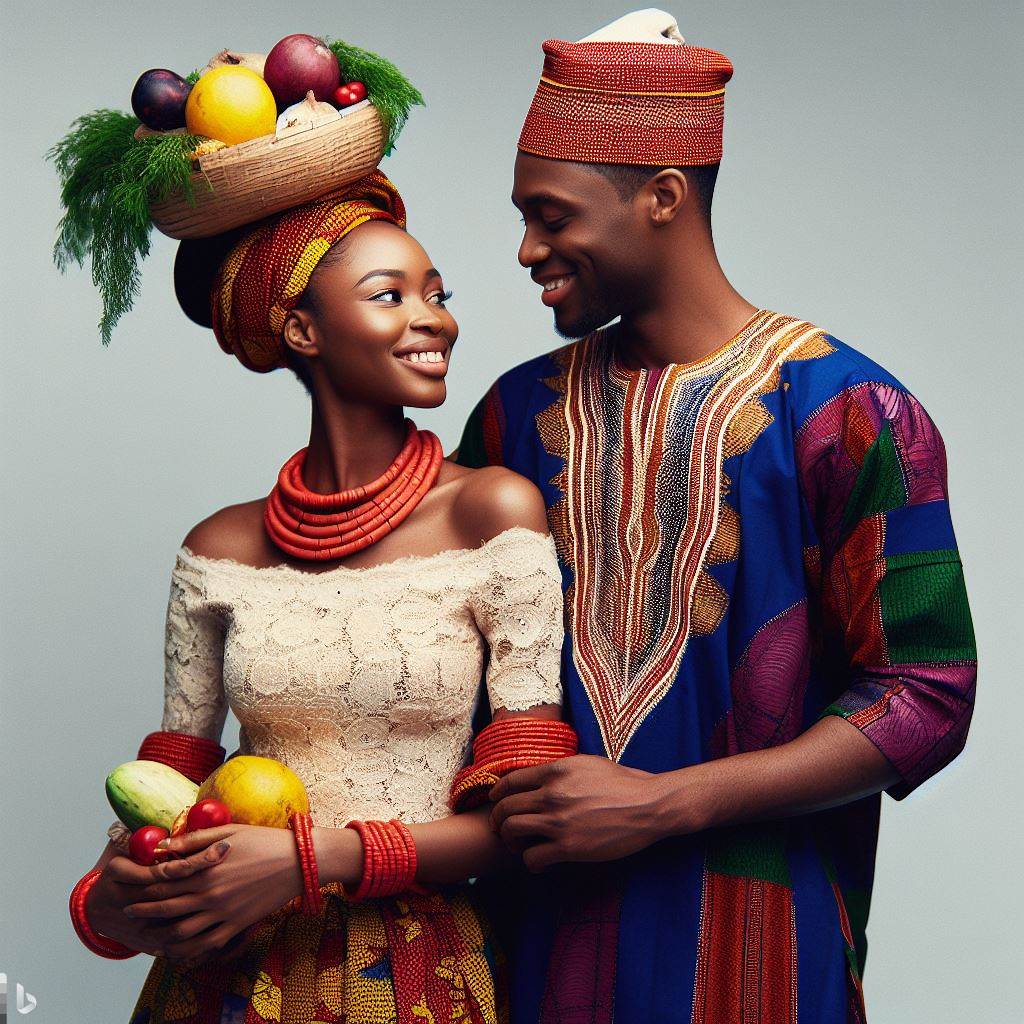
You Might Also Like: Challenges and Joys: The Meaning of Marriage in Nigeria
Emerging Trends in Nigerian Modern Marriages
Increase in love marriages and the decreasing influence of arranged marriages
Love is in the air in modern Nigerian marriages as the influence of arranged marriages continues to decline.
Couples today are more inclined to tie the knot based on love and mutual affection rather than the traditional practice of arranged unions.
Concept of dating and courtship becoming more prevalent
Dating and courtship have become more prevalent in Nigerian society.
Young couples are getting to know each other better, spending time together, and building a foundation for a successful marriage.
The concept of courtship allows individuals to make informed decisions about their partners before committing to a lifelong relationship.
Embracing gender equality and shared responsibilities in marriages
Another emerging trend in Nigerian modern marriages is the embracing of gender equality and shared responsibilities.
Gone are the days when marriage meant the woman was solely responsible for household chores and child-rearing.
Today, couples are working together as equal partners, sharing responsibilities, and making decisions jointly.
Rise of nuclear families and the declining influence of extended family members
Nuclear families are becoming more common in Nigeria, with the influence of extended family members diminishing.
Couples are choosing to live independently, prioritizing their immediate family unit over the extended family.
This shift allows couples to establish their own unique family dynamics and decision-making processes.
Increase in intertribal and international marriages
Intertribal and international marriages are on the rise in Nigeria.
With advancements in technology and increased exposure to different cultures, Nigerians are crossing ethnic and national borders for love.
These marriages contribute to cultural diversity and promote inclusivity in society.
While these trends are shaping modern Nigerian marriages, it is essential to acknowledge that every relationship is unique.
Each couple brings their own beliefs, values, and experiences into their marriage.
However, the overarching theme in these emerging trends is the desire for love, companionship, and equal partnerships.
In essence, Nigerian modern marriages are experiencing significant shifts.
Love marriages are becoming more prevalent, dating and courtship are on the rise, and gender equality is being embraced.
Additionally, nuclear families are gaining prominence, and intertribal and international marriages are increasing.
These trends reflect the evolving perspectives on marriage in Nigeria, highlighting the importance of love, equality, and individual choices in marital relationships.
Read: Celebrations and Rituals: The Joy of Nigerian Weddings
Challenges and Concerns
Clash between traditional and modern values
In Nigeria, the clash between traditional and modern values regarding marriage has given rise to numerous challenges and concerns.
As society becomes more open to different perspectives and lifestyles, conflicts arise between those who embrace traditional beliefs and practices and those who adopt more modern ideas.
Struggles with balancing career aspirations and family life
One of the main struggles faced by individuals in this changing landscape is the difficulty of balancing career aspirations with family life.
Traditional gender roles assign women the primary responsibility for household tasks and child-rearing, making it challenging for women to pursue ambitious careers while maintaining a fulfilling family life.
Rising divorce rates and the stigma surrounding divorce
Another significant issue stemming from the changing perspectives on marriage is the rising divorce rates in Nigeria.
Divorce, once heavily stigmatized, has become more common in recent years.
However, despite its increasing prevalence, divorce still carries a significant social stigma, affecting both men and women who go through the process.
Socioeconomic implications for women who choose not to marry or have children
The decision for women to remain unmarried or not have children also presents socioeconomic implications.
In a society that places high value on marriage and childbearing, women who choose alternative paths may face judgment, discrimination, and limited opportunities.
The stigma surrounding unmarried or childless women affects their social standing, financial stability, and overall well-being.
Impact of changing perspectives on extended family dynamics
Additionally, the changing perspectives on marriage impact the dynamics of extended families.
In traditional Nigerian culture, the extended family plays a vital role in providing support and guidance.
However, the emphasis on individuality and personal fulfillment in modern perspectives can strain these relationships.
Some individuals may prioritize their own happiness over familial expectations, leading to strained ties or even estrangement.
In general, the changing perspectives on marriage in Nigeria pose various challenges and concerns for individuals and society as a whole.
The clash between traditional and modern values, the struggle to balance career aspirations and family life, rising divorce rates, socioeconomic implications for unmarried women, and the impact on extended family dynamics all contribute to the complexity of navigating modern love in Nigeria.
It is crucial for society to recognize and accommodate these changing perspectives, providing support and understanding for individuals seeking to establish fulfilling relationships and lives within this evolving context.
Read: Marriage Counselling: Why it Matters in Nigerian Context
Conclusion
This blog post has explored the changing perspectives on marriage in Nigeria.
We have seen that traditional views and expectations are being challenged by a younger generation that values individuality and personal happiness.
While these changes have brought some benefits, such as increased freedom and flexibility in choosing a partner, they have also presented challenges.
The high divorce rates and the shift away from arranged marriages are examples of the complexities that arise from these changing perspectives.
It is important for Nigerians to approach these changes with open-mindedness and understanding.
Instead of dismissing differing views, we should strive to have meaningful conversations and find common ground.
This evolving concept of modern love in Nigeria requires continuous dialogue and adaptation.
It is through these conversations that we can navigate the complexities of changing perspectives on marriage.
Ultimately, the importance of love, respect, and commitment should not be undermined.
Regardless of the changing landscape, the foundation of any successful marriage remains the same – mutual understanding and willingness to grow together.
By embracing open-mindedness and fostering dialogue, we can create a society that values and respects the evolving nature of modern love in Nigeria.

